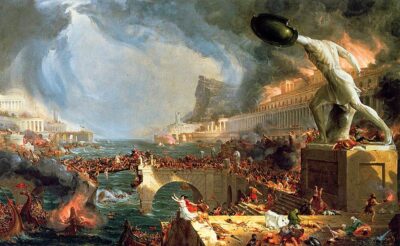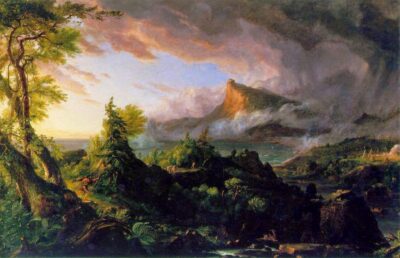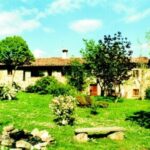October 11, 2024 SHTF
It is not entirely unlikely that survivors of some future catastrophe will remember the world in which they previously lived, so much so that they will be motivated to reconstruct the past.
Life after the collapse. New business and personal relationships will develop

When disaster looms, one must plan to rely solely on one’s own skills and survival strategies.
After all, a post-collapse society is a very sad world where the winner takes it all and everyone else is left to fend for themselves.
So it is necessary to plan for a solitary existence, at least initially.
But history teaches us that in order to survive (first) and rebuild (later) it is necessary to form a community.
No one can do it alone; isolation is not part of our way of life.
We are social beings, and in the long run, new interconnected nuclei will form the roots of the future society that will rise from the ashes of the old one.
Science fiction is full of hypotheses about what post-apocalyptic societies might look like, some more realistic than others, and accompanied by numerous ideas and solutions.
But the element that unites them is the need to live in community, in short, foundations built on the need for a common purpose.
Not only to survive, but to thrive.
Survival through collaboration
The english poet John Donne‘s well-known phrase “No man is an island” is certainly appropriate in the context of rebuilding a society after its collapse.
The first priorities will inevitably have to focus on basic survival : finding food and water, and building shelter for the night.
The initial core of the community must therefore have knowledge of how to store food, how to filter water, and how to construct temporary shelter.

As newcomers join the group, the knowledge base will grow.
People with appropriate expertise will recommend safe places for permanent settlement, away from floodplains, near water resources, and where there is farmland to cultivate.
Others with construction expertise will design and build structures for housing and common needs, including irrigation of farmland and self-defense in case of need.
As basic needs reach sustainable levels for all, activities will expand : power generation and distribution, construction of medical and health facilities.
Meanwhile, educators will teach science, math, and history, further expanding the community’s knowledge base and ensuring its survival.
As the community continues to evolve and progress, it will inevitably interact with other groups of people who have gathered in other regions.
This will lead to the re-establishment of lines of communication, and later, trade, which will develop and expand over time.
New trade and personal relationships will develop, leading to further expansion and the probable creation of new settlements that will foster even stronger ties between different communities.
Reading these lines, it is all too easy to dismiss this vision of the post-collapse community as utopian.
And a good dose of healthy pessimism is certainly not inappropriate.
The reality of such a world may simply prove insurmountable.
The communities that emerge after the collapse will almost certainly not be egalitarian or democratic in character, but will instead be led by a single leader or take the form of loosely connected clans or tribes.
But if history repeats itself, they will soon give way to others more like the present.
It is not unlikely that the survivors of some future cataclysm will remember the world they used to live in, so much so that they will be motivated to reconstruct the life of the past.











